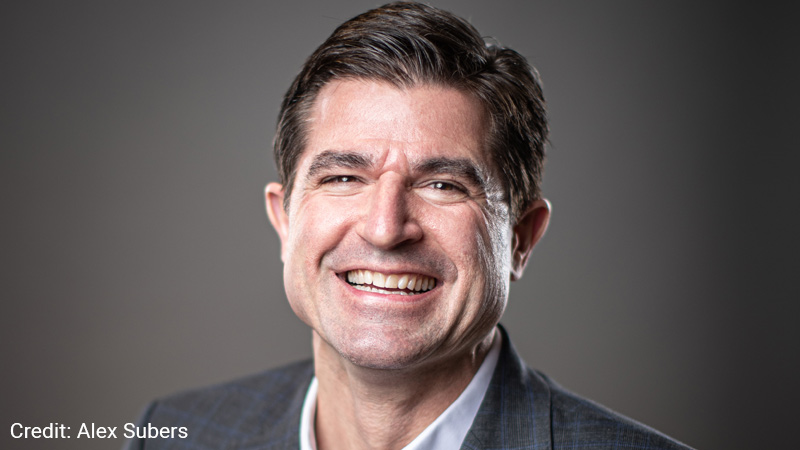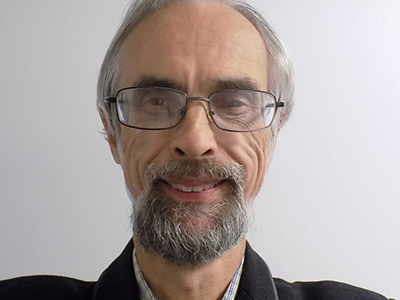The Former CEO of the Philly 76ers Scott O'Neil Knows Where His Feet Are
Scott M. O'Neil had a seemingly charmed life in 2008. At 38, he was named president of Madison Square Garden Sports for the business operations of the New York Knicks basketball team and ice hockey's New York Rangers, both of which were in playoffs.

"There was nowhere I would rather have been because MSG was this incredible brand with indescribable energy and amazing scope," O'Neil told Startup Savant. "During my time there, we invested over $1 billion to keep the World's Most Famous Arena the greatest on the planet. It was my dream job."
He had a wonderful marriage, three amazing daughters, lots of friends, and talented colleagues, he recalled. Four years later, he was very publicly fired, "a modern version of the guillotine," he wrote in his new book “Be Where Your Feet Are: Seven Principles to Keep You Present, Grounded, and Thriving” (with Randal Wright and Michele Bender, from St. Martin's).
But before the blade descended, he knew things were not going as well as they looked on the outside. He had always been enthusiastic about going to work his entire career, but having achieved his major goals, he was struggling to feel passionate (and had some important differences with his boss). He was also away from home 150 nights a year. Then an important mentor passed away unexpectedly, a close friend took his own life, and his father descended into dementia.
A mentor, Peter Guber, now CEO of Mandalay Entertainment, had met him on his first day on the job and gave him some life-changing advice then: don't pretend this might last forever, just use your skills to create meaningful relationships and leverage the incredible platform. Coincidentally, he dropped by on the day of O'Neil's firing and shared his own lessons from having been dismissed from Sony Pictures.
"Don't let your Type A crazy take over," Guber told him. "You're going to have the urge to prove everybody wrong and show how smart you are, how hard you work, how driven you are, how connected you are. But we already know that, so fight off your instincts and take some time and space to decompress. Find a beach somewhere, bring Lisa and the kids, tuck that phone away and get the you back in you. Get the life back in your eyes. Find yourself. Then call me."
O'Neil did as he was advised and took the family to Paris and London for almost three weeks, including visiting Euro Disney, where he rediscovered the kid inside. They still remember it as the best trip of their lives.
"For the first time in my life, I had nobody to get back to, no 'quick' emails to send or 'short' phone calls to make in the middle of lunch," O'Neil wrote. "I was 100% where my feet were and focused on what was in front of me. I gradually learned to give up on trying to find so-called ‘work-life balance,’ which doesn't breed greatness, while being wholly present in the moment can. I also discovered that failure can actually be a greater teacher than success."
Helping Others to Climb the Ladder of Success
O'Neil's parents were role models for success and supportive of whatever career he chose. Because he was a straight-A student in high school, president of the student body, and captain of three sports teams, he was confident he would get into one of the top schools. But only two of the eight he applied to accepted him, "giving me a giant chip on my shoulder. He became a fervent Villanova University Wildcast, never missing a class, including 12 electives in Japanese and two in calculus.
"Along the way, I fell in love with learning, something that became a lifelong pursuit," O'Neil said.
By 26, he was newly married and director of corporate sales for the Philadelphia Eagles National Football League team. He realized, however, that he lacked the professional skills to be a great manager, so he applied to the Harvard Business School to enter its MBA program and was accepted.
At first, however, he was intimidated by so many brilliant classmates with greater experience in top-tier organizations. A professor told him that he should, instead, regard them as 900 friends who could help him and recommended he try to assist them (a third spoke English as a second language, for starters).
"The environment is about learning how to be a great CEO and creating lifelong relationships--it's not about grades," he was told. He began reaching out and by the time of graduation in 1998, was asked to speak at the ceremony.
O'Neil then co-founded HoopsTV, which offered to turn home computers into 24/7 basketball game networks and helped raise $15 million to launch and sustain it. But a video-heavy site before Wi-Fi was ubiquitous failed during the dot-com meltdown of 2000, forcing him to fire his brother, while his credit for years.
By 29, he was vice president of Team Marketing and Business Operations (TMBO) at the National Basketball Association. He had never worked in a big bureaucracy before and was finding it impossible to get anything done. Three months into the job, he had no office phone, laptop, or even business cards. O'Neil was shocked when a mentor suggested he consider his own responsibility for his dilemma: he needed to travel less and build relationships at headquarters by finding out how he could help other executives, rather than just promoting his own ideas.
It paid off in 2005 when he came up with a proposal to promote the NBA Finals, which had dim prospects to draw a large TV audience because of a lack of enthusiasm for some of the qualifying teams. O'Neil offered to try to get all 30 teams on board with marketing it, though NBA management was skeptical. He called on his network of friends, signed up all of them, and made the finals a huge success.
When the senior VP in charge of TMBO left, O'Neil was put at the helm. A few days later, he was assigned to give a presentation to team owners (many of them billionaires) and stumbled through it. But he learned from the failure and gradually worked out the principles of good speaking:
- Do a lot of preparation and practice, no matter how much you think you know the topic.
- Ask for feedback about what to say and be eager for criticisms about your plans.
- Illustrate your points with stories.
- Act confident.
- Tell them what you are going to tell them, then tell them, and summarize what you just said.
When he became CEO of the 76ers in 2013, they were one of the worst performers in the NBA and would soon set a new NBA record for the number of consecutive losses. He told players, staff, and fans to "trust the process" of long-term rebuilding, "since there is no short-cut to the top, only the middle": he urged them to have a big vision, even if it is ahead of the market; do the work and pay the short-term price; make lemonade out of lemons. They chose smart draft picks, ignored the noise, recruited new leaders, and invested in the goals. In 2020, the Sixers captured the division title for the first time in 20 years.
In 2017, O'Neil was made CEO of Harris Blitzer Sports & Entertainment (HBSE), the holding company for the 76ers, Devils, esports businesses, a marketing and hospitality partnership, and the Prudential Center. Its value under his direction increased five-fold, but he stepped down in June 2021 to pursue new ventures.
Managing from Core Values
To create inviolable segments to allow him to focus, O'Neil blocks out time for everything in his professional and personal life, from exercise and morning prayer to conference calls and listening to feedback. Phones have to be left at the door during meetings.
The pandemic was terrible, but "it forced us to check ourselves, slow down, and to pause time and space to reflect on the lives we were leading." During lockdowns, he and the family played board games, put together puzzles, baked, had movie nights, read, held cleaning parties, and went for walks.
Perhaps the biggest wake-up call came from the national protests related to the unjust killing of George Floyd and other Black individuals by police. A Zoom conference during which black and brown members of the HBSE staff shared their experiences with racism and bias was a shock. O'Neil realized the critical need for more diversity of all kinds, which would benefit the organization from the increase in talents and insights. The company created a special team to help achieve that, began investing in revitalization of communities, and committed $2.5 million for education, health, and employment for young people with fewer opportunities.
O'Neil's favorite leadership book, which he urges colleagues read to help them be as objective as possible about their biases and decisions, is “Leadership and Self-Deception” from the Arbinger Institute.
A mentor changed O'Neil's career by challenging him to write his personal "leadership constitution," a summary of what his most important principles and commitments are, as well as what his colleagues can absolutely count on him to be and do. He pledged that he would:
- Bring positive energy into my space.
- Challenge you to raise the bar beyond your expectations.
- Drive hard to reach the summit and then quickly start on another mountain.
- Laugh and cry with you, even when you aren't in the mood.
- Root for you every day.
- Share the most personal thoughts, memories, highs and lows because I am okay with it and who I am.
- Enjoy the rollercoaster of life, whether we are going forwards, backwards, and upside down.
- Share wins and take hits for the team.
But it all starts with being fully present.
About the Author

Scott S. Smith has had over 2,000 articles and interviews published in nearly 200 media, including Los Angeles Magazine, American Airlines’ American Way, and Investor’s Business Daily. His interview subjects have included Bill Gates, Richard Branson, Meg Whitman, Reed Hastings, Howard Schultz, Larry Ellison, Kathy Ireland, and Quincy Jones.
Startup Resources
- Learn more about Startups
- Visit the TRUiC Business Name Generator
- Check out the TRUiC Logo Maker
- Read our Business Formation Services Review
- Find Startup Ideas
- Explore Business Resources
Form Your Startup
Ready to formally establish your startup? Click below to read our review of the best business formation services!
Best Business Formation Services